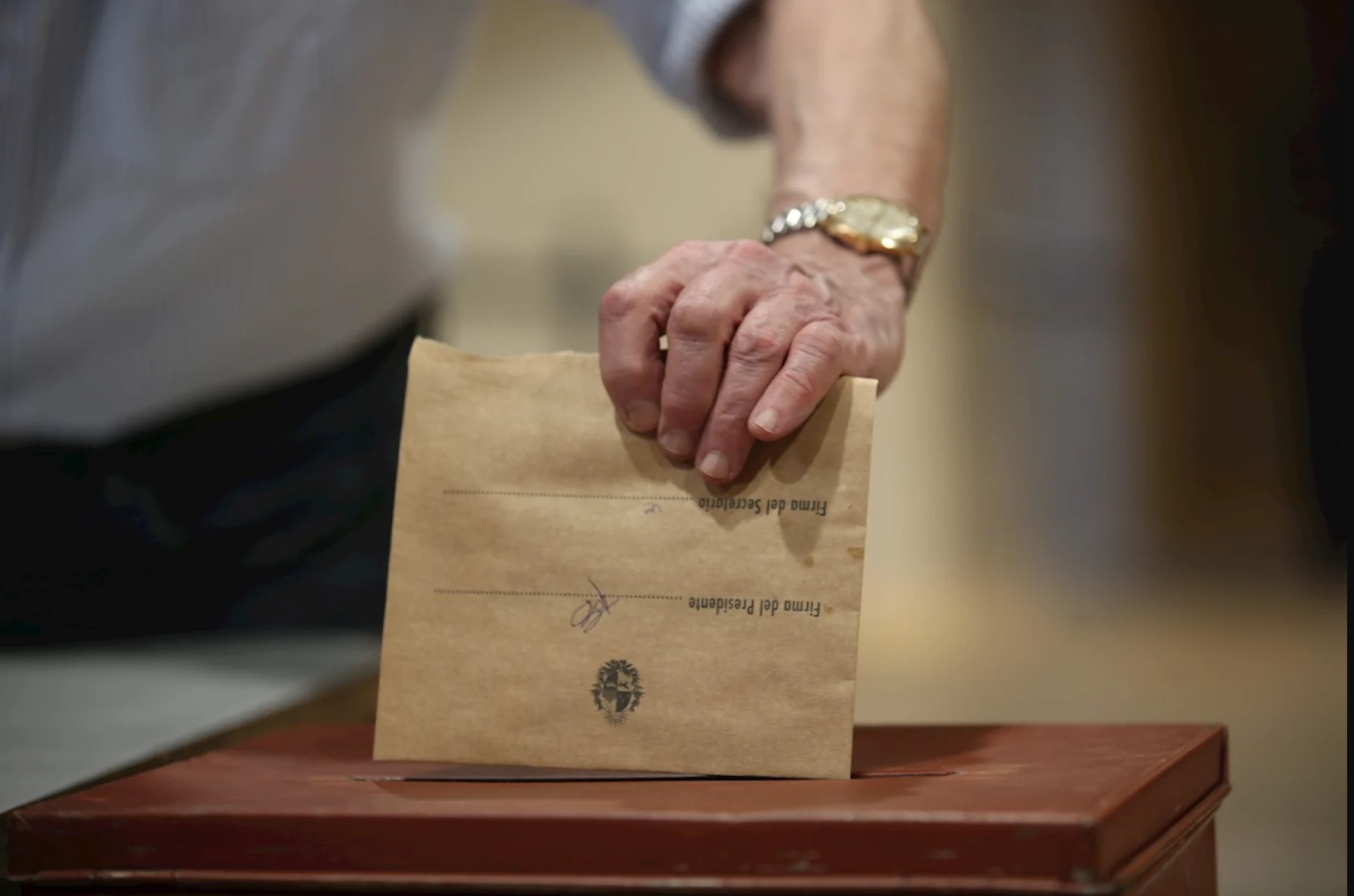On June 30, Uruguay held its internal elections in preparation for the presidential election scheduled for October 27. The Frente Amplio (FA), which is the main opposition party, was the most voted, receiving 47% of valid votes. It was followed by the Partido Nacional (PN) with 37.3%, the Partido Colorado (PC) with 11.7% and Cabildo Abierto (CA) with 2%, the three main parties in the governing coalition. While party competition is not significant at this stage, achieving a strong vote can impact the morale of both supporters and opponents.
Post-primary voting intention polls show a stable scenario. The FA continues to lead the polls, followed by the PN, which has seen a slight decline and a small uptick for the PC, similar to the situation in 2019. One explanation for the PN’s setback, aside from the disappointing result, was the choice of Ripoll for the PN ticket, which led to opposition protests and booing on the night of the internal elections, as well as expressions of discontent from leaders in the following days. This issue, coupled with the scandal in the Artigas municipal government that led to the resignation of several PN leaders, including the mayor, might partly explain this decline.
Repositioning after the internal elections
With a turnout of 35.8%, slightly lower than in 2019, a total of 14 parties exceeded the 500-vote threshold in the internal elections, allowing them to participate in the presidential and legislative elections on October 27. In this context, it’s worth noting that the three main parties are in the process of renewal and it is interesting to see the results and how they have managed the ticket formation.
Within the Frente Amplio, in this second election without the three historic leaders (Tabaré Vázquez, José Mujica and Danilo Astori), Yamandú Orsi received 59.9% of the votes, followed by Carolina Cosse with 37.6% and Andrés Lima in a distant third place with 3.1%. The FA, having been in opposition, has managed to renew itself and seems to have learned from the mistakes made in the 2019 campaign, particularly regarding the nomination of its vice-presidential candidate. This time, the ticket between the top two candidates was defined, leading to the Orsi-Cosse pairing.
On the other hand, the Partido Nacional faced an internal election for the first time without its natural leaders, Lacalle Pou as president and Larrañaga who passed away. With the disadvantage of being the governing party, Álvaro Delgado, the president’s protégé, secured 74.4% of the votes, far ahead of Laura Raffo with 19.3%. The magnitude of Delgado’s lead allowed him to exclude Raffo as his running mate and choose Valeria Rippoll, from the labor movement, with a background in the left and recently joined the PN. This move has been considered risky and has received more criticism than support so far.
In the Partido Colorado Andrés Ojeda emerged as the winner (39.5%), with Robert Silva (22.4%), Gabriel Gurméndez (18.6%) and Tabaré Viera (18.1%) also receiving significant support. According to these results, no candidate met the constitutional requirement; however, the electorate’s preference was respected and Ojeda was nominated as the candidate with Silva as his running mate.
After the internal elections, the most notable development has been the return to political activity of the PC’s former presidential candidate, Pedro Bordaberry, with the launch of a Senate list that is causing rearrangements within the Partido Colorado and creating expectations for a rebound that could even allow the PC to contest the runoff.
Looking ahead to October
Looking ahead to the presidential election on the last Sunday of October, the FA has a voting intention of over 40% across all public opinion surveys, 10 percentage points higher than at this point in the 2019 campaign. In most polls, it is positioned above the sum of the parties in the governing coalition.
On the other hand, the government has strengths that would favor a good electoral performance by its parties, such as presidential approval, which has decreased compared to policies like security and the economy. It seems clear that Lacalle Pou is popular among the public, but his government does not receive as much support. While the president will not be a candidate due to the lack of immediate reelection, many of his close collaborators will be.
The government has also been presumably affected by scandals and irregularities that have emerged since 2022, involving various officials and leading to the resignation of ministers and holders of other significant positions. All this could impact the final results.
There is no doubt that the FA will be, for the sixth time and as has been the case since the 1997 reform, the most voted party in the system. There are reasonable possibilities that it will achieve an absolute parliamentary majority or come very close to it.
Recent electoral precedents, the 2019 runoff and the 2022 referendum, showed a very close scenario with a slight advantage for the current government. One possible interpretation, considering the government’s approval level, is that this scenario will persist, making the election highly competitive and decided by a narrow margin. When the FA was in government and enjoyed these approval levels, the result was reelection.
On the other hand though, the levels and stability of the FA’s favorable voting intention, very similar to or even higher than the three times it won; the absence of the coalition’s natural candidate (Lacalle Pou); and the cost of governing give a greater probability to alternation.
*Translated by Ricardo Aceves from the original article in Spanish.













